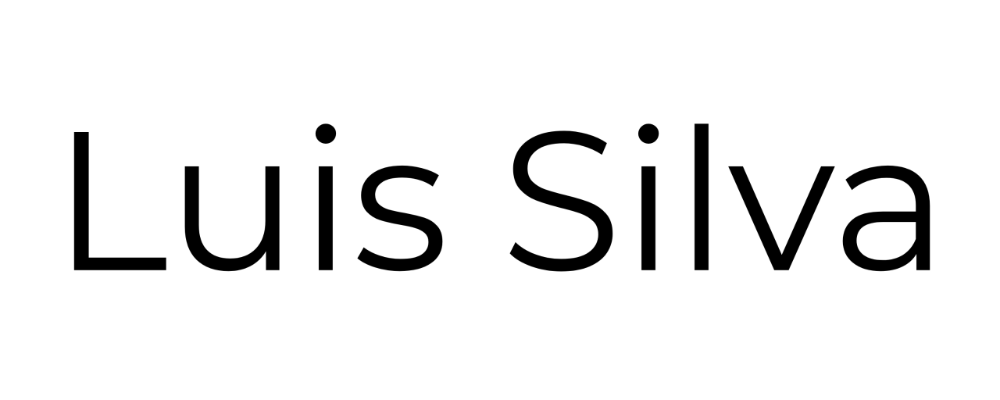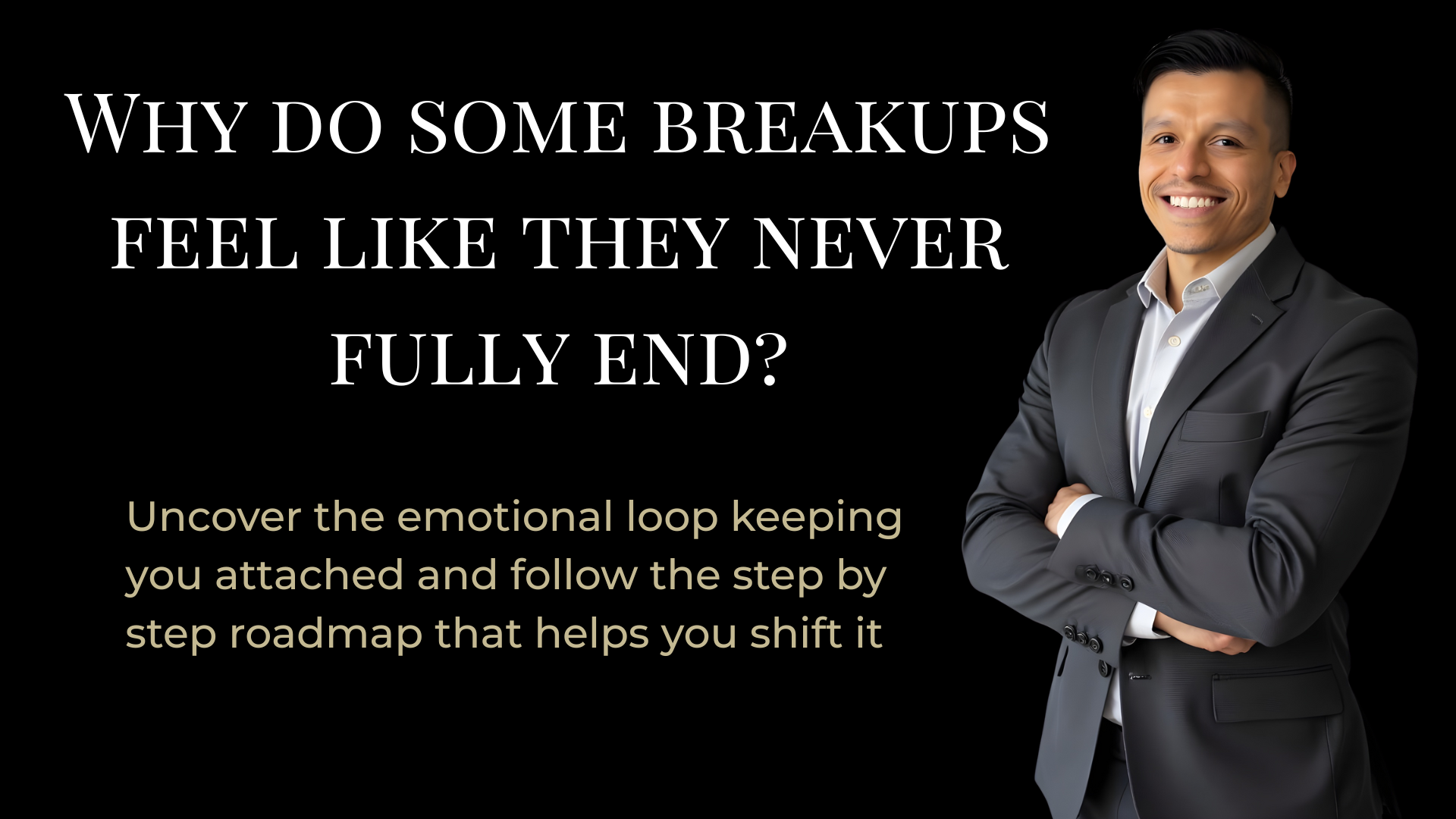
The Shift That Turns Heartbreak Into Your Greatest Strength
What if everything you've been told about heartbreak is backwards? What if the very thing that feels like it's destroying you is actually the raw material for becoming the strongest, most confident version of yourself you've ever been?
Most people treat heartbreak like a disease to recover from as quickly as possible. They rush through the pain, numbing it with distractions, rebounds, or endless Netflix binges. They see it as a failure, a setback, something to "get over" and move past. But there's another way to look at it entirely - one that changes everything.
The truth is, heartbreak isn't just something that happens to you. It's something that can happenfor you, if you know how to work with it instead of against it. The difference between people who stay stuck in their pain and those who transform it into unshakeable strength isn't luck, timing, or having an easier breakup. It's a fundamental shift in how they view what they're going through.
Why Your Pain Contains Hidden Gifts
Think about the moments in your life when you've grown the most. Chances are, they weren't during the easy times when everything was flowing smoothly. Growth happens in the tension, in the discomfort, in those moments when you're forced to face parts of yourself you'd rather avoid.
Heartbreak strips away all the comfortable lies we tell ourselves. It reveals patterns we've been blind to, shows us where we've been giving our power away, and forces us to confront the ways we've been settling for less than we deserve. This isn't punishment - it's information. Raw, unfiltered data about who you are and what you actually need to thrive.
When you're in the middle of it, this feels anything but helpful. The pain seems senseless, overwhelming, like it's going to swallow you whole. But underneath all that intensity is a precision that's almost surgical. Your heart is showing you exactly what needs attention, what needs to change, and what you're truly capable of handling.
The people who emerge from heartbreak stronger don't do so because they're tougher or more resilient by nature. They do it because they learn to read the pain differently. They start seeing it as feedback instead of punishment, as a catalyst instead of a setback.
How High-Achievers Process Setbacks Differently
There's a distinct difference in how successful people approach challenges compared to those who remain stuck. It's not that they don't feel the pain - often, they feel it more intensely because they're more emotionally available and invested in their relationships. The difference is in what they do with that pain.
Instead of asking "Why is this happening to me?" they ask "What is this teaching me?" Instead of focusing on what they've lost, they become curious about what they might discover. They treat emotional upheaval the same way they'd treat any other challenge in their lives - as a problem to be understood and transformed rather than endured.
This mindset shift is everything. When you approach your heartbreak with curiosity instead of victimhood, you start noticing patterns you missed before. You begin to see how certain behaviors, boundaries, or ways of communicating contributed to the situation. Not to blame yourself, but to empower yourself with knowledge you can use going forward.
High-achievers also understand something crucial: the intensity of the pain often corresponds to the magnitude of the breakthrough waiting on the other side. The deeper the wound, the more fundamental the healing that needs to happen. And when that healing occurs, it doesn't just fix the immediate problem - it transforms your entire relationship with yourself and others.
They also know that avoiding the process only delays the inevitable. You can distract yourself for months or even years, but unprocessed pain doesn't disappear. It goes underground, influencing your choices, your confidence, and your capacity for connection in ways you might not even recognize. The sooner you turn toward it with intention, the sooner you can extract its lessons and move forward with genuine strength.
The Neuroscience Behind Post-Traumatic Growth
Your brain is literally designed to adapt and grow stronger through adversity. When you experience significant emotional challenges, neural pathways are disrupted and then rebuilt in new configurations. This isn't just about bouncing back to where you were - it's about developing capacities you never had before.
The same stress response that makes heartbreak feel so overwhelming also activates your brain's plasticity. Under pressure, you become more capable of forming new neural connections, breaking old patterns, and developing fresh perspectives. It's like emotional weight training - the resistance creates strength you couldn't build any other way.
But here's the key: this growth doesn't happen automatically. Your brain can rebuild stronger, but only if you actively engage with the process. If you shut down, numb out, or avoid the emotional work, you miss the window of heightened adaptability. The same intensity that could transform you instead just exhausts you.
This is why people who consciously engage with their heartbreak often report feeling more emotionally intelligent, more confident in their boundaries, and more connected to their authentic selves afterward. They're not imagining it - they've literally rewired their brains for greater resilience and self-awareness.
The process requires you to sit with discomfort long enough for new patterns to form. It means feeling your feelings fully instead of rushing past them, examining your role in what happened instead of placing all blame elsewhere, and choosing to grow from the experience instead of just surviving it. When you do this consistently, your brain adapts by becoming better at handling emotional complexity, making difficult decisions, and maintaining your sense of self under pressure.
Why Successful People Credit Their Biggest Heartbreaks
Picture this scenario: imagine interviewing the most emotionally intelligent, confident, and successful people you know about their relationship history. You'd likely discover something surprising - many of them point to their most painful breakups as pivotal moments that shaped who they became.
This isn't masochism or revisionist history. It's recognition that some lessons can only be learned through experience, and some strengths can only be developed under pressure. The heartbreak forced them to develop emotional muscles they didn't know they had, to establish boundaries they'd never needed before, and to connect with parts of themselves they'd been neglecting.
What makes their stories different isn't that they had easier breakups or recovered faster. It's that they refused to waste the pain. They extracted every possible lesson, used the experience to develop unshakeable standards for how they wanted to be treated, and emerged with a level of self-knowledge that made them magnetic in entirely new ways.
They also learned to distinguish between love and attachment, between supporting someone and losing themselves, between being vulnerable and being available for mistreatment. These distinctions can only be learned through contrast - by experiencing what doesn't work so clearly that you become unwilling to accept it again.
The confidence that comes from this process is different from surface-level self-assurance. It's the quiet certainty of someone who knows they can handle whatever comes their way because they've already been through the fire and discovered they don't break. They bend, they learn, they adapt - but they don't break.
The Hidden Framework: Release, Reclaim, Rebuild
There's a natural progression that happens when you work with heartbreak instead of against it. First, you have to release your grip on how things were supposed to go. This isn't about giving up or accepting defeat - it's about stopping the exhausting fight against reality so you can work with what actually is.
Release looks like accepting that the relationship is over, that the person you loved isn't coming back in the way you hoped, and that the future you planned together isn't going to happen. It's acknowledging your grief without drowning in it, feeling your anger without being consumed by it, and recognizing your disappointment without letting it define you.
This stage is crucial because you can't build something new while you're still clinging to what's gone. Your energy, attention, and emotional resources remain tied up in the past, unavailable for creating what comes next. Release frees up that energy and redirects it toward your growth.
Once you've released attachment to the old story, you can begin to reclaim your power. This means taking back all the energy you've been spending on resentment, regret, and wishful thinking. It means recognizing where you gave your power away in the relationship and choosing to hold onto it moving forward.
Reclaiming your power also involves rediscovering parts of yourself that got lost or suppressed. Maybe you stopped pursuing certain interests, abandoned friendships, or compromised your values to maintain peace in the relationship. This is your opportunity to remember who you are when you're not trying to be what someone else needs.
Finally, you rebuild - but not the same structure that fell apart. You rebuild stronger, with better materials and a more solid foundation. You establish clearer boundaries, develop better communication skills, and create space for someone who can meet you at your new level of emotional maturity and self-awareness.
The rebuild phase isn't just about finding someone new. It's about becoming someone new - someone who attracts healthier relationships because they've developed healthier patterns themselves.
Transforming Your Relationship With Pain
Most people spend their lives trying to avoid emotional pain, which means they also avoid the growth that comes through it. They choose the familiar over the fulfilling, the comfortable over the transformative, the safe over the spectacular. But when heartbreak happens anyway - as it inevitably does - they're unprepared to extract its value.
What if instead of seeing pain as evidence that something is wrong, you saw it as evidence that something is changing? What if instead of trying to minimize your discomfort, you got curious about what it might be trying to tell you?
This shift in perspective changes everything about how you move through difficult experiences. Instead of being a victim of your circumstances, you become an active participant in your transformation. Instead of waiting for the pain to stop so your life can begin again, you recognize that your life is happening right now, in the middle of the mess, and it's teaching you things you couldn't learn any other way.
The pain becomes a teacher instead of a punishment, a catalyst instead of a setback, a doorway instead of a wall. You start to trust your capacity to handle difficult emotions because you've seen evidence of your resilience. You develop confidence in your ability to navigate uncertainty because you've done it before and survived.
This doesn't mean you seek out pain or romanticize suffering. It means you stop running from the inevitable difficulties of being human and start learning to dance with them instead. You become someone who can hold space for the full spectrum of human experience - your own and others'.
Why Your Lowest Point Could Be Your Greatest Breakthrough
There's something profound that happens when you hit rock bottom emotionally. All your usual coping mechanisms stop working, your comfortable self-concepts fall away, and you're left face-to-face with who you really are underneath all the stories you tell yourself.
This stripping away can feel devastating, but it's also liberating. When everything you thought you knew about yourself and your life falls apart, you're free to rebuild according to your actual values and desires instead of the expectations and assumptions that were unconsciously guiding you before.
Your lowest point is often where you finally stop tolerating what isn't working and start demanding what you actually need. It's where you discover reserves of strength you didn't know you had, where you find your voice in ways you never have before, and where you finally become unwilling to accept anything less than genuine love and respect.
The breakdown becomes a breakthrough because it clears away everything that was built on shaky ground. The pain burns through your illusions, your people-pleasing patterns, your fear of being alone, and your willingness to compromise your core needs for the sake of keeping someone around who wasn't truly available anyway.
What emerges from this process isn't a patched-up version of who you were before. It's a fundamentally transformed version of yourself - someone who knows their worth not because someone told them, but because they've tested it under pressure and discovered it's unshakeable.
The Practical Path Forward
Understanding this shift intellectually is one thing. Actually making it is another. The transformation requires sustained attention, intentional choices, and often support from others who understand the process.
Start by changing your internal dialogue about what you're experiencing. Instead of "Why is this happening to me?" try "What is this experience trying to teach me?" Instead of "I can't handle this," experiment with "I'm learning to handle this." Small shifts in language create significant shifts in perspective over time.
Get curious about your patterns instead of just feeling bad about them. What role did you play in the relationship dynamics? What boundaries did you fail to set or maintain? What red flags did you ignore, and why? This isn't about self-blame - it's about self-knowledge that will serve you in future relationships.
Use the intensity of your emotions as fuel for growth instead of evidence of weakness. When you feel overwhelmed, ask yourself what this feeling is trying to protect or communicate. When you feel angry, explore what boundary was crossed. When you feel sad, honor what you're grieving and what it meant to you.
Most importantly, resist the urge to rush through the process. Transformation takes time, and trying to skip steps only delays real healing. Trust that your pain has intelligence, that your heart knows what it's doing even when your mind doesn't understand, and that you're capable of handling more than you think you can.
Your Heartbreak as a Catalyst for Unprecedented Growth
What you're going through right now isn't just something to survive - it's something to transform you. The pain you're feeling isn't evidence that you're broken; it's evidence that you loved deeply and that you're capable of profound feeling. The fact that it hurts so much is proof of your capacity for connection, not a sign of your weakness.
But none of this means anything if you don't actively engage with the process. Your heartbreak will either make you stronger or leave you stuck, depending on how you choose to work with it. The raw materials are there - the question is what you'll build with them.
You have the opportunity right now to use this experience as the foundation for becoming the most confident, emotionally intelligent, and attractive version of yourself you've ever been. Not despite your heartbreak, but because of it. Not by avoiding the pain, but by learning to alchemize it into wisdom, strength, and unshakeable self-worth.
The choice is yours. You can let this experience diminish you, or you can use it to discover just how powerful you really are. You can remain a victim of your circumstances, or you can become the hero of your own transformation story.
Your greatest strength might be waiting on the other side of your greatest pain. The only way to find out is to stop running from what you're feeling and start learning from it instead.
Ready to turn your heartbreak into your comeback? The shift from pain to power isn't something you have to figure out alone. There's a proven framework for transforming your deepest wounds into your greatest strengths, and thousands of men have already used it to rebuild their lives stronger than ever before.
Ready to Break Free from Heartbreak?
Discover the Proven Steps to Rebuild Confidence and Thrive in Life After Love.
Join a Community That Gets You and Helps You Thrive!
Join a community of high-achieving gay men receiving exclusive tools, tips, and support to overcome heartbreak and create a life they love.
We respect your privacy. Your information is 100% secure and will never be shared, sold, or used for spam. You can unsubscribe at any time.


